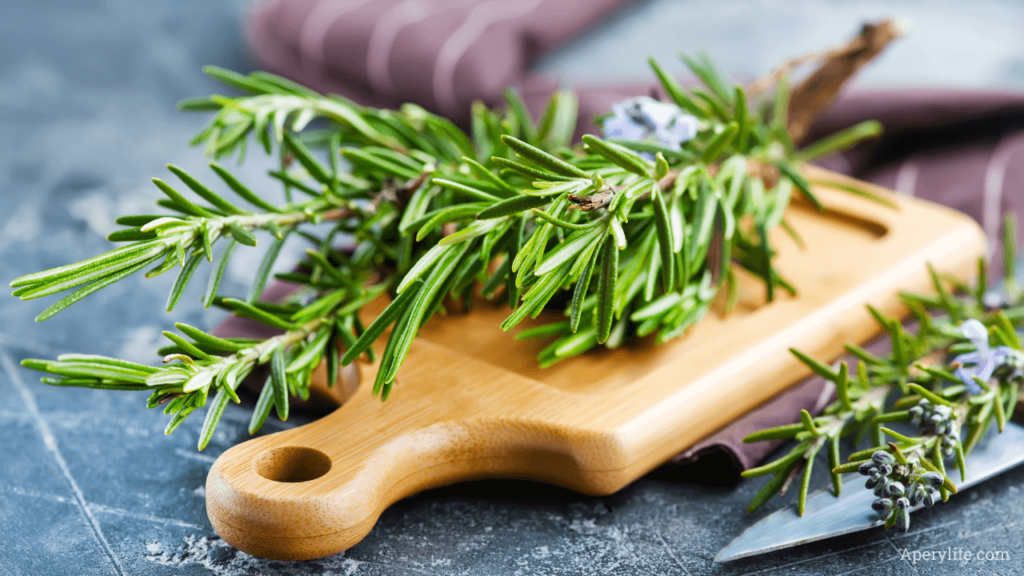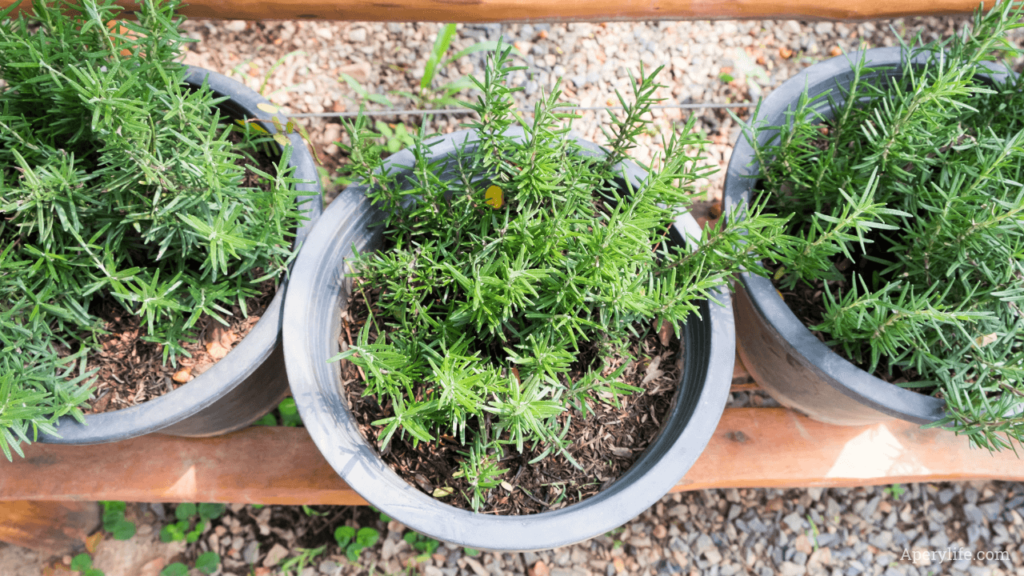Introduction
Rosemary (Rosmarinus officinalis) is a perennial aromatic plant belonging to the Lamiaceae family, native to the Mediterranean region. Known and used since ancient times for its beneficial properties and unmistakable fragrance, rosemary is one of the most versatile and beloved herbs in cooking. With its characteristic intense aroma, it enhances the flavor of numerous dishes and plays an important role in traditional medicine.
History and Origins
The name “rosemary” derives from the Latin ros marinus, meaning “dew of the sea,” a clear reference to its ability to grow spontaneously along Mediterranean coasts. Throughout history, rosemary has symbolized fertility, fidelity, and memory. It was often used in religious rituals and as incense, as well as a medicinal and culinary herb.
Plant Characteristics
Rosemary is an evergreen plant that can reach a height of 1.5 meters. Its leaves are thin, dark green, and shiny on the upper side, with a silver hue underneath. The flowers, which are purple or blue, bloom in spring and sometimes in autumn. The plant thrives best in warm, dry climates with full sun exposure and well-drained soil.
Nutritional Properties and Benefits
Rosemary is rich in essential oils, antioxidants, and phenolic compounds, making it a powerful ally for health. Among its main properties are:
- Antioxidant and anti-inflammatory: Thanks to the presence of rosmarinic acid and other antioxidant compounds, rosemary helps fight free radicals, reducing inflammation and preventing cellular aging.
- Memory and concentration booster: Long associated with enhancing cognitive functions, rosemary has been traditionally used to improve memory and focus.
- Natural digestive aid: Rosemary promotes digestion and can alleviate issues like bloating and abdominal cramps.
- Tonic and invigorating: In herbal medicine, rosemary is often used as a natural stimulant to combat fatigue and exhaustion.
Culinary Uses
Rosemary is one of the most versatile herbs in the kitchen and can be used both fresh and dried. Its robust and woody flavor makes it perfect for:

- Roasts and grilled meats: It’s ideal for seasoning meats such as lamb, chicken, and pork, as well as grilled vegetables and roasted potatoes.
- Flavored oils and sauces: Rosemary is often used to infuse olive oil, butter, and sauces, adding a unique aromatic touch.
- Bread and focaccia: The aroma of rosemary pairs perfectly with leavened doughs, such as focaccia and homemade bread.
- Soups and stews: This herb is great for enriching the flavor of rustic soups and stews, especially when combined with other Mediterranean herbs like thyme and sage.
Medicinal and Traditional Uses
Rosemary is widely used in folk medicine for treating various ailments. Among its common uses are:
- Infusions and teas: Rosemary leaves can be used to prepare infusions that aid digestion and improve circulation.
- Relaxing baths: Adding a few sprigs of rosemary to bath water helps relax muscles and revitalize the body.
- Essential oil: Rosemary essential oil, extracted from its leaves and flowers, is used in aromatherapy to relieve stress, improve focus, and boost the immune system. It can also be applied to the skin to alleviate muscle and joint pain.
Fun Facts About Rosemary
- Sacred plant: In ancient Greece, rosemary was considered sacred to Aphrodite, the goddess of love, and was burned in temples as an offering to the gods.
- Memory symbol: Rosemary has long been associated with memory. Greek students wore intertwined rosemary twigs in their hair during exams to improve concentration.
- Protection symbol: In the Middle Ages, rosemary was believed to protect against diseases and evil spirits. It was often hung over doors or burned in homes to purify the air.
How to Grow Rosemary
Rosemary is a hardy and easy-to-grow plant. Here are some tips for growing it successfully:

- Sun exposure: Rosemary loves direct sunlight, so it’s important to place it in a well-lit area.
- Well-drained soil: The plant doesn’t tolerate excess moisture, so it’s essential that the soil is well-drained.
- Moderate watering: Rosemary needs little water, especially if planted outdoors. In pots, it should be watered only when the soil is dry.
Conclusion
Rosemary is much more than just an aromatic herb. It’s an ingredient that enriches Mediterranean cuisine and a plant with multiple health benefits. Versatile and easy to grow, rosemary is a valuable resource to have on hand, both in the kitchen and in everyday life.
All rights reserved © Copyright Aperylife.com